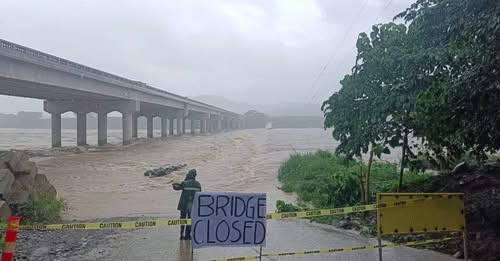The hard lesson of this last year has made it very clear that despite our country’s impressive statistics showcasing it as one of the best-performing in Asia, Filipinos who experience cyber crimes cannot depend on the government for help when it strikes.
The reality is that the government’s current data and achievements mean nothing to a Filipino who falls victim to cyberattacks, facing devastating consequences without adequate support or recourse. Infrastructure Development, the President emphasized in his SONA the importance of sustained, strategic, and on-schedule infrastructure development.
Our power and internet services are continuously being upgraded in both capacity and connectivity, with the completion of phase 1 of the National Fiber Backbone and the commencement of phases 2 and 3. This backbone is expected to provide sufficient bandwidth capacity by 2026. The Free Wi-Fi Program, which has benefited nearly ten million unique user devices across more than 13,000 locations, will be further expanded to enhance nationwide internet access.
Cybersecurity Personnel Training Cybersecurity is a critical area of focus. The President highlighted in his SONA the launch of the National Cybersecurity Plan, which aims to safeguard our systems against cyberattacks. To achieve this, there will be a concerted effort to train cybersecurity personnel, ensuring they have the skills and knowledge necessary to protect our digital infrastructure. This initiative will involve collaborations with private sector partners to create robust training programs that address current and emerging cyber threats.
IT Security Training Campaign
An IT security training campaign will be launched to educate the Filipino masses on best practices for cybersecurity. This campaign will focus on raising awareness about common cyber threats and teaching individuals how to protect themselves online. Such education is essential in fostering a culture of cybersecurity vigilance among the general population, thereby reducing the risk of cyberattacks on a national scale.
Appointing qualified leaders in the technology department, particularly the Department of Information and Communications Technology (DICT), is crucial. The President stressed the need for leaders who possess the technical expertise and strategic vision to drive the country’s technological advancements. These leaders will be responsible for overseeing the implementation of the National Cybersecurity Plan, the expansion of Internet infrastructure, and other key technology initiatives.
Failures in Addressing Cybersecurity Issues
Despite these promising initiatives, the government has faced significant challenges in addressing the worsening cybersecurity issues plaguing the country. Recent reports highlight the Philippines’ vulnerability to cyber threats due to inadequate cybersecurity infrastructure and a lack of comprehensive measures to protect against cyberattacks. These weaknesses have led to several high-profile data breaches, underscoring the urgent need for more effective cybersecurity strategies and implementation.
Need for Immediate Action
The recent surge of text scams has highlighted the urgency of addressing these cybersecurity threats. Despite the capability of both the government and telecom companies to filter these scams, they have failed to protect citizens effectively. This inability to manage and prevent such threats underscores the necessity for the Philippines to act swiftly to protect its digital infrastructure and its people from cybercrime
Thus, the President’s plans for technology underscore a multifaceted approach to national development. By focusing on infrastructure development, cybersecurity personnel training, IT security education, upgrading the skills of ICT personnel, and appointing qualified leaders in the DICT and CICC, the government aims to create a secure, connected, and resilient technological environment. However, the ongoing cybersecurity challenges highlight the need for more immediate and robust actions to protect the nation’s digital assets. These efforts, coupled with initiatives in food security, climate adaptation, disaster preparedness, and education, reflect a comprehensive strategy to advance the country’s overall progress and well-being.
—————–
Rafael “Raffy” Gutierrez is a seasoned Technology Trainer with over 25 years of experience in networking, administration, systems design, and other computer-related technologies.




